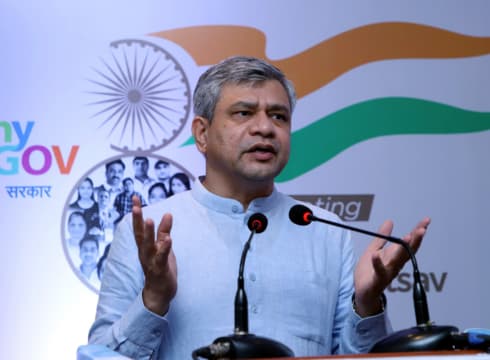Mandatory licensing requirements for OTT communication apps and requirements related to data sharing with the government could dampen innovation: ITI Council
New Telecom Bill brings OTT communication apps such as WhatsApp, Signal, Telegram under the ambit of of telecom services
ITI counts tech giants such as Google, Twitter, Amazon and Meta as its members
Inc42 Daily Brief
Stay Ahead With Daily News & Analysis on India’s Tech & Startup Economy
A Washington-based lobby group has said that certain provisions in India’s draft Telecommunication Bill, 2022 have the potential of dampening competition and innovation in the OTT space.
Speaking to Moneycontrol, information technology industry (ITI) council president Jason Oxman specifically pointed out provisions regarding mandatory licensing requirements for over-the-top (OTT) communication apps and requirements related to data sharing with the government.
“New broadband companies and OTT content providers will be subject to a host of regulations that really could dampen competition and innovation by imposing new licensing requirements that require data-sharing with the government”, said Oxman.
It is pertinent to note that ITI counts tech giants such as Google, Twitter, Amazon and Meta as its members.
He also called on the government to review the contentious portions of the draft law and to take a fresh look at the ‘definition of regulated telecom companies.’
In response to a question about the liability of social media platforms for online content, he said that the government should focus on targeting the instigator and not the platforms itself.
Overhauling The Regulatory Landscape
The lobbying efforts come at a time when tech giants are locked in a tussle with the Indian government. The centre has been on a spree unveiling new set of laws and bills to regulate the burgeoning Indian digital space.
Earlier last month, India unveiled its draft Telecommunication Bill that it aims to ratify in the next six to ten months. The new Bill aims to replace legacy laws such as the Indian Telegraph Act of 1885, the Indian Wireless Telegraphy Act of 1933 and the Telegraph Wires (Unlawful Possession) Act, 1950.
This has ignited debate on topics such as mandatory know your customer (KYC) for OTT apps to purportedly curb instances of cyber fraud. Add to that, certain provisions in the Bill also bring OTT messaging apps such as WhatsApp, Telegram and Signal under the ambit of telecom services.
While these platforms tout their end-to-end encryption as their defining feature, the draft law gives teeth to the union government to intercept any messages sent through these messaging apps in matters related to national security.
The move is part of the larger Digital India Act framework that would aim to address issues ranging related to data protection and data governance.
On a previous occasion, the government withdrew the three-year old data protection bill after it failed to arrive at a consensus on the draft law and overreaching criticism from the industry. The group has been lobbying the government to not henceforth skip the same mandatory data localisation norms that were proposed under the now defunct bill.
According to Statista, India is the largest market for WhatsApp and was home to more than 487 Mn users in 2021. As a result, India is a huge market for these platforms and a dent here could send their future prospects on a downward spiral.
{{#name}}{{name}}{{/name}}{{^name}}-{{/name}}
{{#description}}{{description}}...{{/description}}{{^description}}-{{/description}}
Note: We at Inc42 take our ethics very seriously. More information about it can be found here.


